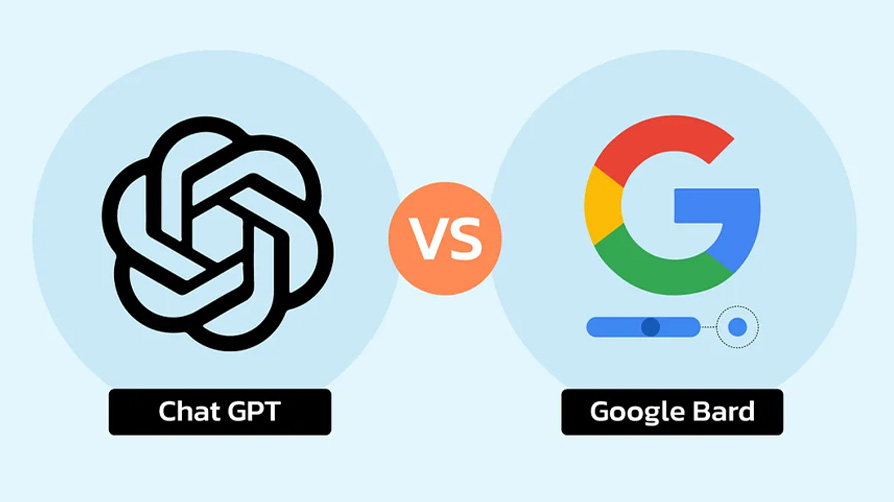ChatGPT vs BARD - Which one is better for developers
-

- Artificial Intelligence
- Apr 29, 2024
- 3views
- Reading time: 7 minutes

Introduction to ChatGPT and BARD
As a developer, the quest for optimal coding efficiency is an ongoing endeavor. In this article, I will explore the features, capabilities, use cases, and pros and cons of ChatGPT and BARD to help you decide on your coding needs.
What is ChatGPT:
ChatGPT, developed by OpenAI, represents a breakthrough in natural language processing (NLP) technology. It harnesses the power of deep learning algorithms to understand and generate human-like text based on contextual cues. For developers, ChatGPT serves as a versatile virtual assistant, capable of providing code completions, answering coding-related queries, and offering contextual guidance throughout the development process.
What is BARD:
BARD, or Bayou Automated Reasoning for Development, represents another innovative AI tool designed to assist developers in their coding endeavors. Unlike ChatGPT, which focuses on understanding and responding to natural language inputs, BARD specializes in generating code from high-level descriptions or specifications. This capability makes BARD particularly useful for developers looking to expedite the coding process by automating the generation of boilerplate code or implementing complex algorithms based on textual descriptions.
Comparative Analysis of ChatGPT and BARD
Features and Capabilities of ChatGPT
ChatGPT can provide code completions, answer coding-related questions, and even assist in debugging. Its ability to understand context and generate coherent responses makes it a powerful tool for brainstorming ideas or exploring alternative coding approaches.
Here's a closer look at some of the key features ChatGPT brings to the table:
-
Code Completions: One of the standout features of ChatGPT is its ability to provide intelligent code completions. ChatGPT can suggest relevant code snippets, function definitions, variable names, and more by analyzing the context of the code being written and leveraging its vast knowledge base. This feature accelerates the coding process and helps developers maintain consistency and adhere to best practices.
-
Coding-Related Questions: ChatGPT excels at answering coding-related questions posed by developers. Whether you're seeking clarification on a particular syntax, algorithm implementation, or debugging technique, ChatGPT can provide insightful explanations and guidance. This capability empowers developers to overcome coding hurdles and deepen their understanding of programming concepts.
-
Assistance in Debugging: Debugging is an integral part of the software development lifecycle, and ChatGPT can lend a helping hand in this regard. By analyzing code snippets and error messages, ChatGPT can offer suggestions for potential issues and debugging strategies. This proactive assistance not only saves time but also fosters a more efficient debugging process.
-
Contextual Understanding: One of ChatGPT's greatest strengths lies in its ability to understand the context. Whether it's deciphering the intent behind a code snippet, interpreting natural language queries, or generating responses that align with the overall context of the conversation, ChatGPT excels at contextual understanding. This enables more meaningful interactions and enhances the quality of assistance provided to developers.
Features and Capabilities of BARD
BARD, on the other hand, focuses on generating code from natural language descriptions. BARD's strength lies in its ability to generate syntactically correct and contextually relevant code. It can handle a wide range of programming languages and provides developers with a starting point for their coding tasks.
Here's a closer look at the key features and capabilities of BARD:
-
Code Generation from Natural Language: At the core of BARD's functionality is its ability to generate code directly from natural language descriptions provided by developers. Whether it's a detailed algorithm specification, a functional requirement, or a programming task description, BARD can interpret the textual input and produce syntactically correct code snippets in response. This capability streamlines the coding process and eliminates the need for manual translation of textual requirements into code.
-
Syntactic Correctness and Contextual Relevance: BARD's strength lies in its ability to generate code that not only adheres to the syntax rules of the target programming language but also maintains contextual relevance to the provided description. By analyzing the semantics and structure of the natural language input, BARD ensures that the generated code accurately captures the intended functionality and meets the developer's requirements. This ensures a high level of accuracy and reduces the need for extensive manual refinement of generated code.
-
Starting Point for Coding Tasks: By providing developers with a starting point for their coding tasks, BARD accelerates the development process and fosters rapid prototyping and experimentation. Developers can use the code generated by BARD as a foundation to build upon, iterate, and refine further. This jumpstart reduces the time and effort required to implement complex algorithms, design patterns, or functional components, allowing developers to focus on higher-level problem-solving and innovation.
Pros and Cons of Using ChatGPT for Coding Efficiency
Pros:
-
Customization Options: ChatGPT offers a range of customization options, allowing developers to tailor its behavior to their specific needs and preferences. Whether it's adjusting the level of assistance or fine-tuning the types of code suggestions provided, ChatGPT empowers developers to personalize their coding experience.
-
Versatile Assistance: ChatGPT's ability to provide code completions, answer coding-related questions, and assist in debugging offers a versatile set of tools to enhance coding efficiency. Developers can rely on ChatGPT for a wide range of tasks, from mundane code suggestions to complex problem-solving scenarios.
Cons:
-
Reliance on Training Data: ChatGPT's effectiveness is contingent upon its access to large amounts of training data. While this allows ChatGPT to generate contextually relevant responses, it also means that it may occasionally produce incorrect or biased suggestions, especially in cases where the training data is insufficient or biased toward certain patterns or coding styles.
Pros and Cons of Using BARD for Coding Efficiency
Pros:
-
Integration with Development Environments: BARD's seamless integration with popular development environments enhances collaboration and productivity within teams. Developers can leverage BARD's code generation capabilities directly within their preferred IDEs, streamlining the coding process and minimizing context-switching overhead.
-
Collaborative Features: BARD's collaborative features facilitate teamwork and knowledge sharing among developers. By providing a common platform for generating and discussing code implementations, BARD fosters collaboration, code reviews, and collective problem-solving, ultimately leading to higher-quality codebases.
Cons:
-
Limited Codebase Coverage: BARD's effectiveness is contingent upon the availability of relevant examples and scenarios within its training data. In cases where the codebase lacks sufficient examples or fails to handle specific scenarios, BARD may struggle to generate accurate code or provide meaningful assistance, leading to potential limitations in its usefulness for certain projects or tasks.
Choosing the Right AI Tool for Optimal Coding Efficiency
When selecting ChatGPT and BARD for coding efficiency, it is essential to consider your specific requirements and preferences. If you value conversational interaction, code completions, and contextual assistance, ChatGPT may be the ideal choice. On the other hand, if you primarily need code generation from high-level descriptions and collaborative coding features, BARD might be the more suitable option.
Here's a guide to help you make an informed decision:
Consider Your Coding Style and Workflow:
-
Conversational Interaction: If you prefer a conversational interface and value interactive assistance throughout your coding journey, ChatGPT may be the ideal choice. Its ability to engage in natural language interactions and provide real-time code completions and explanations can enhance your productivity and streamline your workflow.
-
Code Generation from Descriptions: On the other hand, if your coding tasks involve translating high-level descriptions or specifications into code implementations, BARD might be better suited to your needs. BARD's strength lies in its ability to generate syntactically correct and contextually relevant code from natural language inputs, making it a valuable tool for rapid prototyping and code scaffolding.
Evaluate Your Collaboration Requirements:
-
Solo vs. Team Projects: Consider whether you'll be working individually or as part of a team on your coding projects. If collaboration and knowledge sharing are essential aspects of your workflow, BARD's integration with popular development environments and collaborative features may offer significant advantages. Conversely, if you primarily work solo and value personalized assistance, ChatGPT's conversational interface and code completions may suffice.
Assess the Complexity of Your Coding Tasks:
-
Codebase Coverage and Complexity: Evaluate the complexity and diversity of coding tasks you typically encounter. If your projects involve a wide range of programming languages, frameworks, and libraries, ChatGPT's versatility in understanding and generating code across different contexts may be advantageous. However, if your coding tasks are highly specific and require precise code generation from detailed descriptions, BARD's specialized capabilities may provide better results.
Consider Your Learning and Adaptation Preferences:
-
Customization vs. Out-of-the-Box Solutions: Determine whether you prefer customizable AI tools that can be tailored to your specific preferences and coding style (such as ChatGPT) or if you prefer out-of-the-box solutions with built-in capabilities optimized for particular use cases (such as BARD). Your preference for flexibility and adaptability versus ease of use and predefined functionality can influence your choice between ChatGPT and BARD.
Conclusion and Final Thoughts on ChatGPT and BARD for Coding Efficiency
In summary, ChatGPT and BARD provide valuable features and capabilities for developers aiming to optimize coding efficiency.
Whether opting for ChatGPT or BARD, integrating AI into your coding workflow has the potential to expedite development processes and foster the creation of more efficient and robust codebases. Embracing AI technologies unlocks new possibilities and enhances productivity, paving the way for innovative solutions and streamlined workflows in software development.
